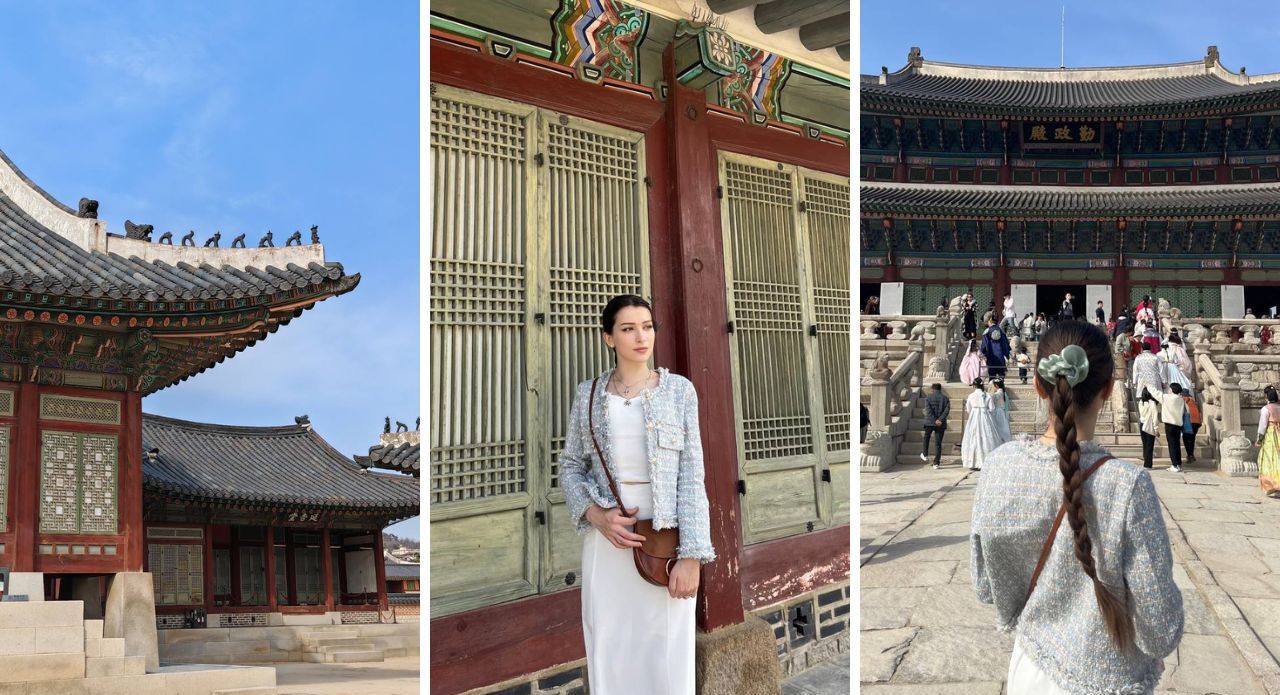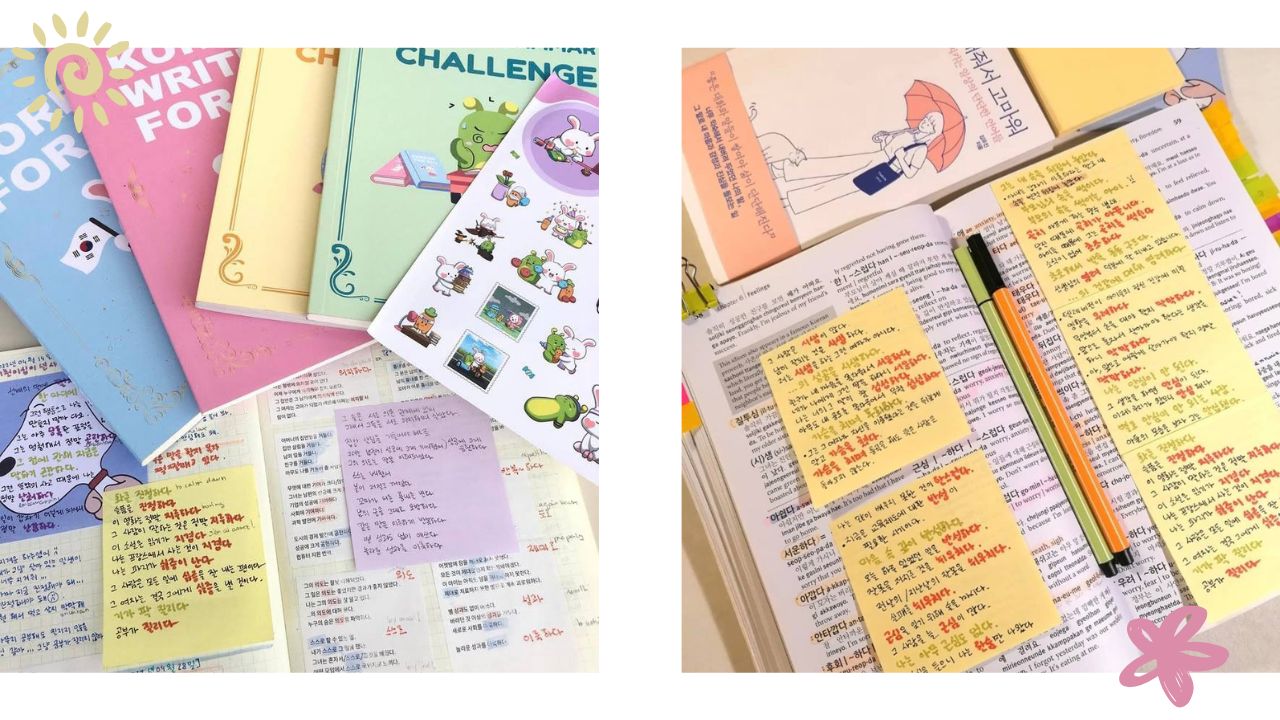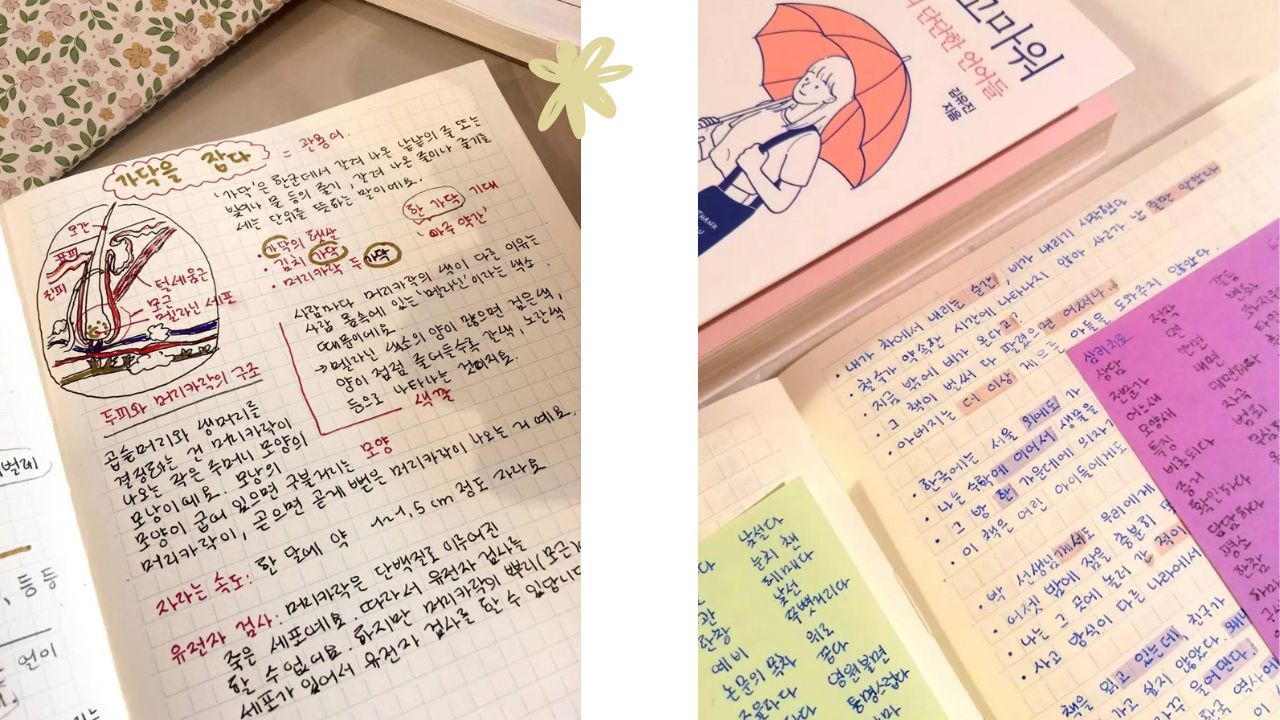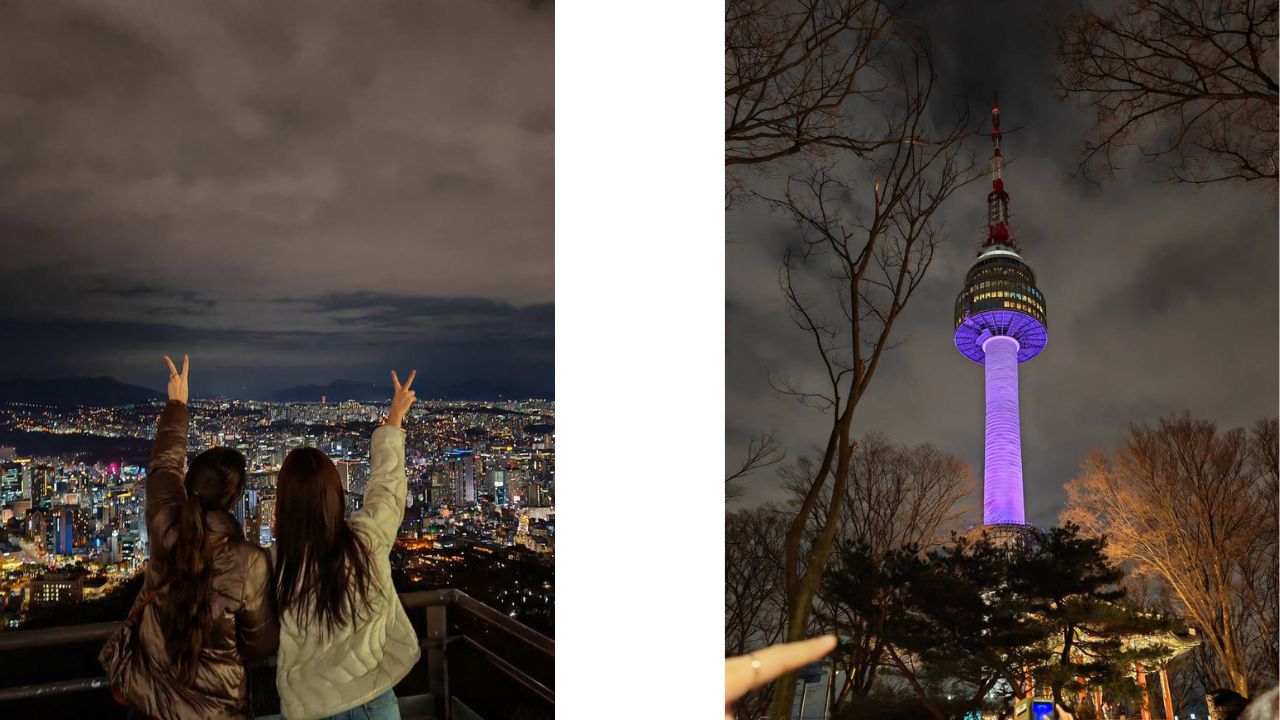As someone passionate about languages, I often find myself on the language-learning side of social media. While scrolling through different posts I’ve seen all kinds of opinions about learning Korean. Some claim it's one of the most difficult languages ever, while others say they became fluent in just two months (which, let’s be honest, sounds pretty unrealistic). A lot of people also add ‘learn Korean’ to their New Year's resolutions, but once they realize it’s not as easy as they expected, most give up.
I find Korean quite challenging, and I’m impressed by those who succeed in becoming fluent. That’s why I decided to uncover the secrets of someone who speaks not just Korean, but eight different languages. Laure is a French-Polish polyglot who speaks French, English, Polish, Chinese, Russian, Japanese, German, and of course, Korean. Let's take a closer look at her journey and find out how she managed to master a language as challenging as Korean.
How It All Started
It all started with a Korean classmate and a documentary about Korean high schools, which sparked Laure’s interest in the country’s culture. The more she learned about Korea’s history, language, and culture, the more curious she became.
She even joined a pen-pal website to chat with Korean students in English. That’s when she realized that to have better conversations, it wouldn’t hurt to know the language.
She started by learning Hangul through YouTube videos and Talk To Me in Korean. “I learned each letter first, then moved on to words and full sentences,” she says. To get better at reading, Laure read short stories without audio at first, then listened to them matching the sounds with the text. “Reading full sentences is much better than separated words since pronunciation can change depending on context,” she shares. She also listened to songs, focusing on Korean lyrics and avoiding romanization.
Pronunciation was one of the hardest parts to master. “Shadowing and mimicking native speakers really helped me get better at it,” she recalls. Laure says she tried to learn vocabulary through real speech, watching dramas, listening to native speakers, and reading stories. This helped her recognize words in real situations. “Words didn’t stick unless I had already seen them in sentences or heard them in context,” she says.
“I studied grammar with textbooks that included audio, so I could hear the patterns being used in speech,” Laure says. She kept her notes simple, focusing only on the grammar patterns and examples. “No long explanations or translations—just the pattern and how it’s used,” she says. Laure also immediately applied new grammar by writing her own sentences or using them in conversation. “The sooner I used it, the faster it became natural to me.”

Strategies for Learning Korean
Laure admits that learning Korean wasn’t easy, especially because of its sentence structure and grammar. Since it was so different from the European languages she knew, there were no familiar words or grammar to rely on. It felt like starting from zero. "I couldn’t rely on familiar vocabulary, grammar rules, or cultural context. Even tasks like forming simple sentences felt strange at first," she says.
To overcome this, Laure tried different strategies:
Immersion: From the start, Laure tried to immerse herself in the language as much as possible. “I focused on thinking in Korean, not translating it. I practiced by shadowing, role-playing, listening to Korean media and writing journal entries,” she says.
Having a clear learning plan: Having a clear plan made learning easier for Laure. “A plan keeps me focused and helps me see what I am good at and what needs more work,” she says.
Learning words in context: Laure didn’t rely on flashcards. Instead, she paid attention to how full sentences were structured and looked for patterns. “Learning words in sentences has been much more effective for me than using flashcards. Flashcards only show words on their own, making it hard to recognize them later in conversations or while reading” Laure says. By practicing with full sentences and short stories, she learned how words work together, improving her grammar and vocabulary without extra effort. “This helped me remember words more easily,” she adds.
Using other languages as a base: At first, Laure didn’t think her knowledge of Japanese and Chinese would help, but it turned out to be really useful. “Japanese grammar and Hanja helped me understand Korean better and learn more words by comparing them across the languages,” she says.
Shadowing and role-playing: To get better at speaking and improve her pronunciation, Laure practiced shadowing and role-playing conversations. She mimicked native speakers' natural speech patterns, tone, and rhythm. 'By practicing real-life situations, I get better at speaking,' she says."
Consistency: When learning a language, consistency makes all the difference. ”I practiced speaking regularly so my brain could start thinking in Korean,” Laure says. Whether listening, reading, writing, or speaking, Laure made language practice a daily habit, which helped her improve bit by bit.
To remember new words and grammar faster, Laure used these strategies:
Listen: She listened to Korean conversations, songs, and audiobooks every day.
Use it right away: Using new words right away helped her remember them faster. “If I don’t use it, I forget it,” she says.
Make a story: She used the new words she learned to create short stories.
Learn in layers: First, she learned words in sentences, then used them in stories, and finally in conversations.

Effective Listening Strategies
Listening was a key part of Laure’s journey. "It helped me understand how sentences are formed without stressing about the rules," she says. Here’s what worked for her:
Daily listening: She listened to Korean through dramas, podcasts, and songs.
Shadowing: Repeating after native speakers helped a lot with her pronunciation.
Reviewing content: Listening to the same material over and over helped her remember better.
No subtitles challenge: She focused on listening instead of reading subtitles.
Full immersion: Instead of using grammar books, she learned naturally through real-life exposure.
Building Confidence in Speaking
Like most language learners, Laure felt shy speaking Korean at first. Over time, she realized that confidence comes with practice. "No one speaks perfectly at first, so the key is to just start and not worry about making mistakes," she says.
Here’s how she built her confidence:
Talking to real people: She joined language exchanges at her university and practiced in Hilokal chat rooms. "Talking to real people helps more than just using apps," she says.
Using speaking apps: Apps like Hilokal and HelloTalk made it easier to practice without feeling stressed.
Practicing speaking alone: She practiced by speaking Korean to herself, repeating sentences, and imitating native speakers. "Speaking takes a lot of practice," she says.
Letting go of perfection: She didn’t wait until she knew every rule to start speaking. "Even broken sentences can be understood, and accuracy gets better with time," she says.

Common Mistakes to Avoid
Laure shared some common mistakes Korean learners make and how to avoid them:
Learning vocabulary without context: Memorizing words on their own makes them hard to remember. Full sentences help with understanding and using them in real life.
Not practicing listening and speaking enough: Fluency improves with regular practice. Shadowing, language exchange apps, and speaking aloud help with getting comfortable with the language.
Avoiding native content: Avoiding native content like K-dramas, YouTube videos, and podcasts slows your progress.
Being afraid to speak: Waiting for perfection holds you back. Start speaking right away to become more confident
Comparing yourself to others: “Comparing yourself to others only adds pressure,” Laure says. “Don’t stress about progress. Just keep going.”
From Language to Culture
What kept Laure motivated throughout her learning journey was her connection to the language and culture. She even made friends with Korean people and practiced with them at university in exchange for helping them with French. One of her friends even stayed at her university for three years, giving her lots of chances to practice every day.
Laure always wanted to visit Korea, and that goal kept her going, even when learning felt tough. “Visiting Korea years after starting my language journey felt natural, almost like I’d always known the place,” says Laure. Speaking Korean fluently allowed her to move around easily, understand conversations, and order food. Being familiar with the language and culture made her feel comfortable in a country she visited for the first time. Now, she keeps learning because there’s always more to discover.

How about this article?
- Like0
- Support0
- Amazing2
- Sad0
- Curious0
- Insightful0


